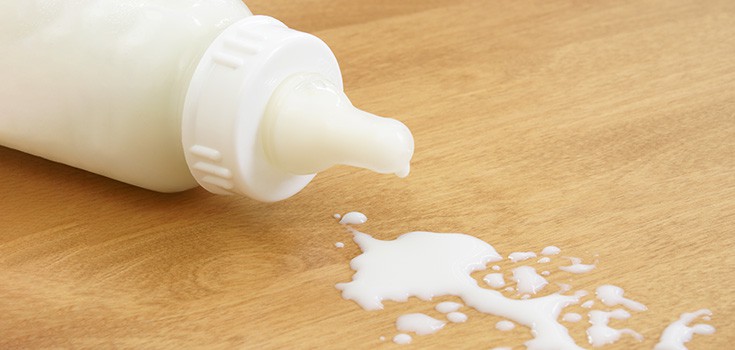FDA Officially Bans BPA in Baby Bottles

After countless activists and concerned organizations voiced serious concern over the presence of the cancer-linked chemical substance known as BPA in baby bottles, the FDA has finally responded by banning the presence of BPA in baby bottles nationwide. While the decision is highly beneficial for the health of toddlers and parents across the United States and elsewhere, the FDA continues to ignore the mass amount of research linking toxic BPA (also known as bisphenol-a) to a host of diseases such as cancer and diabetes.
BPA in Baby Bottles Officially Banned by FDA, Still in Food Products
During the same round of statements made regarding the ban of BPA in baby bottles within the US, FDA spokesperson Curtis Allen continued to outlandishly assert that the ‘safety of BPA’ used in actual food products is still supported by the organization. Allen even goes on to say that the reason for the ban is more a result of the industry ‘abandonment’ of BPA than actually protecting the health of US citizens. In his statement, Allen told medical reporters:
“FDA’s action is based on industry’s abandonment of these uses of BPA… The agency continues to support the safety of BPA for use in products that hold food.”
Meanwhile, nations like Canada have already taken the initiative to halt the usage of BPA due to legitimate health concerns. As far back as October of 2010, Canada declared that BPA was a toxic substance and should be heavily regulated as such. Outside of being shown to drastically increase your risk of developing diabetes, BPA has also been linked to breast cancer in more than 130 studies. Other associated conditions include heart disease, infertility disorders, and much more.
So why is the FDA brushing this chemical off as a perfectly ‘safe’ food-grade chemical?
It has been revealed that just after the FDA rejected a recent request to ban BPA as a whole within the United States, BPA makers were set to make a whopping $8 billion in sales. Even more outrageous, these producers launched their subsequent manufacturing campaigns that ultimately accounted for the creation of over 4.7 million metric tons of BPA. Clearly, this industry is quite massive and has not only a large financial backing but also a substantial lobbying wing. In the event that the FDA outright banned BPA, multi-billion dollar corporations would be extremely upset.
Instead of choosing public health over the interests of these companies, the FDA once again sided with mass industry. The organization noted that while there are very serious scientific concerns regarding BPA, the agency is simply going to wait it out and see how it really impacts humans. In other words, they admit it is potentially causing a widespread wave of cancer, diabetes, and heart disease, but the hundreds of prominent studies and outspoken health experts just aren’t enough for the agency.
“While evidence from some studies have raised questions as to whether BPA may be associated with a variety of health effects, there remain serious questions about these studies, particularly as they relate to humans,” wrote the FDA.
